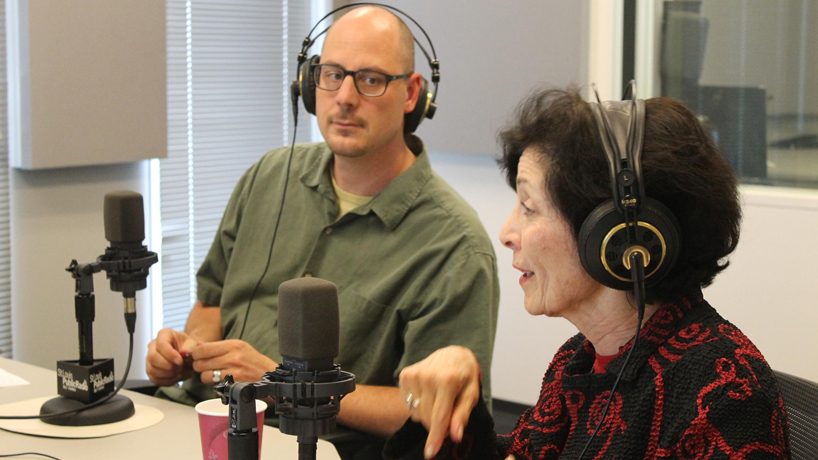Siewert, of UMSL’s Center for Ethics in Public Life, and Vivian Eveloff, of UMSL’s Sue Shear Institute for Women in Public Life, guest on “St. Louis on the Air.”


Siewert, of UMSL’s Center for Ethics in Public Life, and Vivian Eveloff, of UMSL’s Sue Shear Institute for Women in Public Life, guest on “St. Louis on the Air.”
Siewert, of UMSL’s Center for Ethics in Public Life, and Vivian Eveloff, of UMSL’s Sue Shear Institute for Women in Public Life, guest on “St. Louis on the Air.”
Siewert, of UMSL’s Center for Ethics in Public Life, and Vivian Eveloff, of UMSL’s Sue Shear Institute for Women in Public Life, guest on “St. Louis on the Air.”
Look back at some of UMSL Daily’s top stories from the past year, including the launch of the UMSL School of Engineering and the naming of the Ed G. Smith College of Business, along with continuing campus transformation.

A letter from St. Louis Alderman Freeman Bosley Sr. that solicited for money to help fund his daughter’s college education has led to media coverage by multiple St. Louis-area news outlets. KMOV (Channel 4) reported that the letter came close to blurring the line between Bosley’s public and private life, but was not illegal. The news station asked Wally Siewert, director of the Center for Ethics in Public Life at the University of Missouri–St. Louis, to weigh in.
A letter from St. Louis Alderman Freeman Bosley Sr. that solicited for money to help fund his daughter’s college education has led to media coverage by multiple St. Louis-area news outlets. KMOV (Channel 4) reported that the letter came close to blurring the line between Bosley’s public and private life, but was not illegal. The news station asked Wally Siewert, director of the Center for Ethics in Public Life at the University of Missouri–St. Louis, to weigh in.
A letter from St. Louis Alderman Freeman Bosley Sr. that solicited for money to help fund his daughter’s college education has led to media coverage by multiple St. Louis-area news outlets. KMOV (Channel 4) reported that the letter came close to blurring the line between Bosley’s public and private life, but was not illegal. The news station asked Wally Siewert, director of the Center for Ethics in Public Life at the University of Missouri–St. Louis, to weigh in.